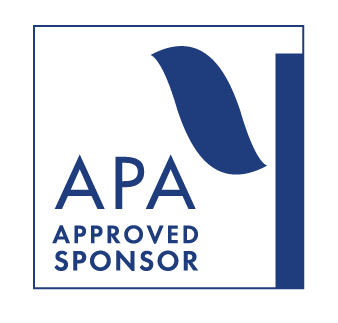Effective Suicide Intervention
- Topic Areas:
- Depression | Suicide Interventions
- Categories:
- Live Webinar
- Speaker:
- Susan Marie Ph.D., PMHNP, CARN-AP, Ph.D.
- Course Levels:
- Intermediate to Advanced
- Duration:
- 7 Hours 30 Minutes
- License:
- Access for event date only.
Producer: Vermont Psychological Association
Description
This holiday season is the perfect time to update your skills in suicide assessment and intervention. This course highlights new evidence-based practices which are proven to be more effective at reducing suicide, including zero suicide approaches, developing suicide safety plans, and means reduction skills. You will learn how to adapt your skills to assess and intervene with higher risk populations including veteran, elderly, LGBTQ and teen clients. This very practical course will increase your confidence and competence in preventing suicide.
Objectives:
- Describe how 3 myths about suicide interfere with effective intervention.
- Compare and contrast suicide contracts and collaborative safety planning.
- Describe 3 key contributing domains to holistic suicide assessment.
- Apply crisis intervention skills specifically to address immediate suicidality.
- Describe 3 behaviors that increase legal liability with suicidal clients.
- Describe how personal and professional experiences influence and impact clinical decision making with suicidal clients
Credits
 The Vermont Psychological Association is approved by the American Psychological Association to sponsor live continuing education for psychologists. The Vermont Psychological Association maintains responsibility for its programs and their content.
The Vermont Psychological Association is approved by the American Psychological Association to sponsor live continuing education for psychologists. The Vermont Psychological Association maintains responsibility for its programs and their content.
Completion of this course earns 6 continuing education credits. Psychologists licensed in states whose licensing board approves continuing education offered by APA-approved sponsors may earn continuing education credits for this course.
Courses sponsored by the Vermont Psychological Association are pre-approved for continuing education for psychologists by the Vermont Board of Psychological Examiners. This course qualifies for 6 continuing education credits.
Continuing education courses sponsored by the Vermont Psychological Association are pre-approved by the Vermont Office of Professional Regulation for continuing education credit for licensed independent clinical social workers in Vermont. This course provides 6 CE credits for Vermont licensing.
This course has been approved for continuing education credit by the Vermont Board of Allied Mental Health and earns 6 continuing education credits.
The Vermont Psychological Association is approved by the American Psychological Association to offer continuing education for psychologists. These credits are also accepted by the New Hampshire Board of Mental Health Practice for clinical social workers licensed in New Hampshire, as provided in Mhp 402.02(b)(1). The course qualifies for 6 continuing education credits.
The Vermont Psychological Association is approved by the American Psychological Association to offer continuing education for psychologists. These credits are also accepted by the New Hampshire Board of Mental Health Practice for clinical mental health counselors licensed in New Hampshire, as provided in Mhp 402.02(b)(1). The course qualifies for mandated credit types as follows:
Ethics:
Suicide Prevention:
The Vermont Psychological Association is approved to offer continuing education to licensed clinical social workers by the Vermont Office of Professional Regulation, and is approved by the American Psychological Association to offer continuing education to psychologists. This course thus qualifies for 7.2 continuing education credits for Massachusetts licensed clinical social workers in Massachusetts under 258 C.M.R. §§ 31.04(2)(d), 31.04(5).
The Vermont Psychological Association is approved to offer continuing education to licensed clinical social workers by the Vermont Office of Professional Regulation, and is approved by the American Psychological Association to offer continuing education to psychologists. This course thus qualifies for 7.2 continuing education credits for Massachusetts licensed certified social workers in Massachusetts under 258 C.M.R. §§ 31.04(2)(d), 31.04(5).
The Vermont Psychological Association is approved by the American Psychological Association as a continuing education sponsor for psychologists. Continuing education credit in the amount of 6 credits earned in this course may be accepted by the Connecticut Department of Public Health for licensed clinical social workers under Conn. Agencies Regs. § 20-195o(c)-3.
This course is pre-approved for credit for Connecticut licensed professional counselors under Conn. Agencies Regs § 20-195cc-3(a)(1). This course qualifies for 6 continuing education credits.
Handouts
| Speaker Slides (1.8 MB) | 62 Pages | Available after Purchase |
| Columbia Suicide Severity Rating Scale (CSSRS) (79.8 KB) | 3 Pages | Available after Purchase |
| Stanley & Brown Safety Planning Template (89.4 KB) | 1 Pages | Available after Purchase |
| PHQ-9 (39.9 KB) | 1 Pages | Available after Purchase |
Speaker

Susan Marie Ph.D., PMHNP, CARN-AP, Ph.D. Related Seminars and Products
Susan Marie Consulting
Dr. Marie is the senior medical consultant and psychiatric mental health nurse practitioner for Behavioral Health with Central City Concern in Portland, Oregon. She is also on the graduate faculty at Oregon Health and Sciences University in Portland. She speaks nationally on effective suicide intervention, psychopharmacology, and the do’s and don’t’s for mental health therapists to improve client results with psychiatric medications. She recently authored The Art and Science of Psychopharmacology, published in 2020. Dr. Marie specializes in providing psychiatric consultation, integrating mental health into primary care settings, and psychopharmacology for vulnerable clients with complex needs.
Course Objectives
Objective 1Describe how 3 myths about suicide interfere with effective intervention.
Objective 2
Compare and contrast suicide contracts and collaborative safety planning.
Objective 3
Describe 3 key contributing domains to holistic suicide assessment.
Objective 4
Apply crisis intervention skills specifically to address immediate suicidality.
Objective 5
Describe 3 behaviors that increase legal liability with suicidal clients.
Objective 6
Describe how personal and professional experiences influence and impact clinical decision making with suicidal clients.



